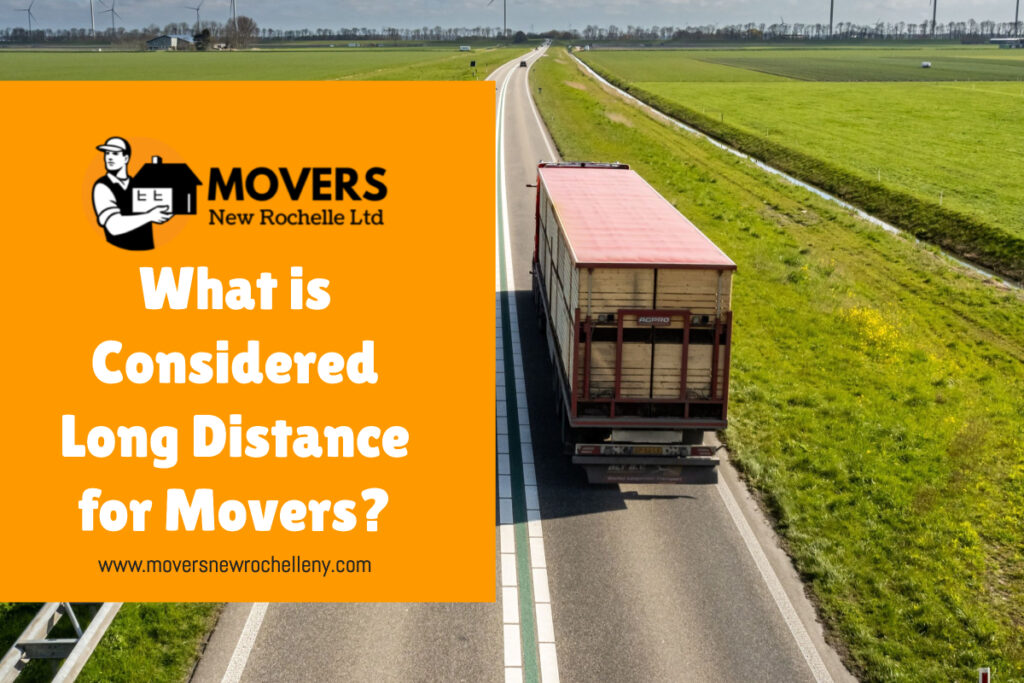How Are Long-Distance Moves Calculated?
Understanding the calculation behind long-distance moves is crucial for planning your relocation budget. These calculations rely on various factors, making them more intricate than those for local moves. Here’s a breakdown of the components involved:
When preparing for a long-distance move, a variety of factors influence the cost estimate, and understanding these can help you budget effectively.
Key Components of Moving Costs
- Weight of Your Belongings: The total weight is a major factor in determining costs. It’s surprising how quickly items accumulate, so consider decluttering beforehand to save money.
- Travel Distance: The further you need to move, the higher the transportation costs will be. This includes fuel and other travel expenses from the starting point to the destination.
- Selected Services: The type of service you choose greatly impacts the cost. Comprehensive options that include packing and unpacking will be more expensive. Additional needs such as temporary storage or handling of special items will also increase the total.
- Insurance Options: There are different insurance plans available. Basic liability coverage is cheaper but provides limited protection. Full-coverage insurance, though more expensive, offers extensive security for your belongings.
Choosing between different cost estimates presented by moving companies might feel overwhelming. Here’s a quick breakdown:
- Non-Binding Estimates: These can fluctuate based on the actual moving details.
- Binding Not-To-Exceed Estimates: Your cost can decrease if the move ends up being less than anticipated, but it won’t go above the specified amount.
- Binding Estimates: These present a fixed cost, offering certainty in budgeting.
Clarifying the type of estimate upfront can safeguard you from surprise expenses when moving day arrives.
Key Factors in Cost Calculation
- Weight of Your Belongings
- The weight of the items being transported is a fundamental aspect. Moving companies typically weigh your shipment and use that figure as a primary basis for pricing.
- Distance to Destination
- The geogDistance to Destination
The geographical distance between your current location and your new home is directly proportional to the cost. The longer the distance, the more you’ll likely pay.
Distance Measurement: This isn’t just about the miles on the map; it’s about precision. Moving companies rely on advanced route planning software and GPS tracking to determine the exact mileage. These tools help ensure that the journey is as efficient and cost-effective as possible, minimizing unnecessary detours and optimizing fuel usage.
- The geogDistance to Destination
- Required Services
- The range of services you opt for can significantly influence costs. Options like packing, loading, unloading, and unpacking all add to the bill. Additional services, such as temporary storage or handling fragile items, also increase expenses.
- Insurance Options
- Choosing between basic liability or full-value protection insurance can affect the total cost. Comprehensive coverage generally means a higher premium but offers more security for your belongings.
Types of Estimates
Understanding the estimates provided by moving companies can help avoid unexpected charges:
- Non-Binding Estimates
- These are subject to change, meaning the final cost could be higher or lower than initially quoted.
- Binding Not-to-Exceed Estimates
- This guarantees that the price won’t exceed the estimate, though it might decrease if the actual move circumstances are more favorable than assumed.
- Binding Estimates
- Fixed costs that stay the same, giving you a set price from the get-go.
Additional Considerations
- Timeframe for Delivery
- Long-distance moves can take anywhere from several days to a few weeks, depending on factors such as total distance and route complexity. Companies usually provide a delivery window, so planning accommodation and essentials until arrival is key
- Influencing Factors: The delivery timeframe isn’t just about miles. The complexity of the route, as well as seasonal factors like busier summer periods, can extend transit times. This is why professional movers offer a “delivery spread”—a flexible window of time when you can expect your belongings to arrive.
- Operational Capabilities: The size of your move and the specific capabilities of the moving company can also impact how long you’ll wait. For instance, cross-country moves might have a wider delivery spread, spanning several days. Understanding these variables helps in better scheduling and managing expectations.
- Seasonal Influences
- Timing can also affect your move. For instance, peak moving seasons, like summer, might result in higher costs or longer delivery spreads due to increased demand.
With these aspects in mind, you can navigate the intricate process of calculating long-distance move costs more smoothly. Remember, decluttering beforehand can also help reduce weight, potentially lowering your expenses.

Understanding the 100-Mile Standard in Moving
When it comes to moving, the 100-mile standard is a key factor in determining the nature and classification of your move. This unofficial rule is widely employed across the moving industry to label a move as either local or long-distance.
What Constitutes a Long-Distance Move?
A long-distance move is generally defined as a relocation that exceeds a 100-mile radius from your starting point. So, if you’re planning to move 150 miles away, your move would be classified as long-distance. This distinction is vital because it influences both the logistics and costs associated with your move.
How Does the 100-Mile Guideline Affect Moving Services?
- Cost Calculation:
- Local Moves: Typically charged by the hour.
- Long-Distance Moves: Often priced based on weight and distance.
- Service Requirements:
- Long-distance moves may require more comprehensive planning, additional paperwork, and specialized services.
Here’s a quick reference table for clarity:
Type of Move Distance Local Moves Up to 100 miles Long-Distance Beyond 100 miles By knowing the nature of your move, you can make informed decisions to better manage your budget and expectations. This distinction helps you plan effectively, ensuring you use the right services for your needs.
Understanding the landscape of long-distance moves is crucial when you’re planning to relocate. A move over 100 miles typically falls under the category of long-distance. These moves can be further divided into:
- Interstate Moves: Crossing state lines
- Intrastate Moves: Covering long distances within the same state
Recognizing these categories aids in selecting appropriate services. Professional movers offer a spectrum of services—from basic transportation to full-service moves, which include packing, loading, and unloading. For fragile or valuable items, specialized packing materials and services are indispensable.
Cost Considerations
When selecting a moving option, several factors influence the cost:
- Distance and Weight: The further and heavier the load, the higher the expense.
- Packing Services: Additional fees may apply for packing and handling.
- Insurance Coverage: Essential for protecting your belongings.
- Specialty Items: Items requiring extra care may incur additional charges.
It’s wise to weigh all moving options, from renting a truck for a more hands-on approach to opting for full-service moves for a stress-free experience. Factor in not just the average cost but potential additional expenses to ensure a smooth transition to your new home.
By thoroughly understanding these options and considerations, you can tailor your move to fit your specific needs, ensuring a seamless relocation experience.
Understanding the Differences: Local vs. Long-Distance Movers
Long-Distance Movers: Masters of the Open Road
When it comes to long-distance movers, their expertise is as broad as the distances they travel. These professionals are skilled in crafting strategic plans specifically designed for extensive relocations, ensuring your belongings are safely transported over various terrains. They are well-versed in the complexities of interstate transportation, including the myriad of laws, vehicle inspections, and necessary permits required to cross state borders. This knowledge ensures that your long-haul move goes off without a hitch.
Moreover, long-distance movers are trained in securely loading and unloading your possessions to withstand the rigors of lengthy journeys. They focus on minimizing risks such as damage during transit by strategically packing and handling your items.
Local Movers: Navigators of the Neighborhood
Local movers, on the other hand, excel in short-distance relocations, often completing moves within a single day. They are the experts when it comes to navigating neighborhoods, whether it’s weaving through narrow city streets or handling the logistics of apartment buildings with tight hallways. Their intimate knowledge of the local area allows them to efficiently manage all the nuances of smaller-scale moves.
While they may be adept at quick and efficient moving, local movers typically don’t require the same level of interstate regulatory knowledge or the logistical planning that long-distance moves demand.
By understanding these distinct areas of expertise, you can choose the right mover for your specific needs, ensuring a smooth and efficient move—whether it’s across the city or across the country.
What Options Are Available for Long-Distance Moves?
Embarking on a long-distance move, typically anything beyond 100 miles, presents a multitude of choices tailored to your needs. Whether you’re crossing state lines or staying within the same state, it’s crucial to understand the options available to ensure a smooth transition.
Types of Long-Distance Moves
- Interstate Moves:
- These involve crossing from one state to another. They require special attention to regulations as each state may have different requirements.
- Intrastate Moves:
- These occur within the boundaries of one state but cover substantial distances. Despite not crossing state lines, they can still be intricate and demanding.
Moving Services Options
- Moving Services Options
- Full-Service Movers:
For those seeking a hassle-free experience, full-service movers handle everything from packing to unloading. This option is ideal for anyone who prefers a hands-off approach, letting professionals manage the details. Companies like Movers New Rochelle, NY provide these services. Additionally, full-service movers often offer comprehensive solutions that include custom crating for special items, ensuring even your most delicate possessions are securely packed and transported. - Self-Service Moving:
Perfect for the budget-conscious, this option lets you pack and load your belongings while professionals handle transportation. Companies such as Movers New Rochelle, NY offer rental trucks tailored to your size needs, giving you control over other aspects of the move. This approach not only saves money but also provides flexibility in how you manage your move. - Specialty Item Movers:
Some items demand extra care, whether due to fragility or value. Specialized movers ensure these possessions are securely packed and transported, providing peace of mind for your most treasured items. In addition to these services, many long-distance moving companies offer vehicle transportation to safely relocate your car, as well as temporary storage options to accommodate any delays in your moving schedule. - These comprehensive services are crafted to mitigate the stress of lengthy moves, offering a more turnkey solution that caters to a variety of needs. Whether you require full-service packing or just need help with transportation, there’s a moving option designed for your convenience.
Cost Considerations
- Distance & Weight:
Generally, the farther and heavier your shipment, the higher the cost. Understanding this can help you plan your move budget more effectively. - Services & Extras:
Additional services such as packing, insurance coverage, and handling of specialty items also impact the total expense. These should be factored in when considering different service levels.
Final Thoughts
Evaluate your priorities—do you value saving money, minimizing stress, or a balance of both? Your decision between full-service companies, DIY truck rentals, or self-service options will depend on these factors. By carefully considering your needs and budget, you can choose the best approach for a successful long-distance move.
Planning Your Long Distance Move Ahead
A long distance move can be a long trip. In these situations, it’s best to start planning as early as possible. Remember that there is paperwork involved, and you need to consider several factors in order to avoid unexpected costs. You’ll need to figure out navigation routes and determine if additional stops are needed. Having a professional company help you with these details is a major advantage. It will reduce the overall cost of your move and save you money in the process.
Key Factors Influencing Long-Distance Moving Costs
Distance and Travel Time
The distance from your current location to your new destination is a primary cost driver. Longer distances mean more fuel consumption, increased travel time, and possibly extra costs like tolls or overnight stays for movers. These elements can significantly affect the overall expense.
Volume of Belongings
Another essential factor is the volume of your belongings. The more you have, the larger the moving vehicle needed, which directly impacts cost. Moreover, more time and effort are required for loading and unloading. Consider downsizing before the move; not only is it liberating, but it also trims expenses.
Packing and Additional Services
Packing services, while optional, offer peace of mind as they ensure your items are safely transported. However, they come at a price. Professional packing involves materials like boxes and bubble wrap, all of which add to the cost. Whether you handle it yourself or hire help, factor these expenses into your budget.
Logistical Considerations
Don’t overlook logistical details such as elevator access or stairs at your new place. These can complicate moves, potentially increasing labor costs. Planning ahead can alleviate these challenges, ensuring a smoother process.
In summary, understanding these factors allows you to budget wisely for a long-distance move. By breaking down each element, from the distance to the volume of belongings, you can anticipate costs more accurately and avoid surprises. With careful planning, you can make your journey to a new home both economical and efficient.
Understanding Your Options
When it comes to choosing the right long-distance moving option, knowing the range of services available is crucial. Professional movers offer everything from basic transportation to comprehensive full-service moves, which include packing, loading, and unloading. If you have fragile or valuable items, specialized packing materials and services are essential to ensure their safety.
Factors Influencing Costs
Several factors can influence the cost of your move:
- Distance: The further your move, the higher the potential cost.
- Weight: Heavier loads may incur more charges.
- Packing Services: Opting for professional packing can add to the expense but provide peace of mind.
- Insurance Coverage: Additional insurance can protect your belongings but may increase your budget.
- Specialty Items: Items requiring special handling might attract extra fees.
As a general rule, the more complex and distant the move, the higher the costs you should expect. By understanding these factors, you can better plan and budget for your upcoming relocation.
When planning a long-distance move, additional services often become essential to ensure your belongings reach their destination safely and securely. One crucial service is professional packing. Although it might add to your budget, the expertise and materials used can provide valuable peace of mind.
Essential Packing Materials
- Boxes: Available in various sizes for different items.
- Bubble Wrap: Protects fragile items from breaking.
- Packing Paper: Fills spaces and cushions your possessions.
If you prefer a hands-off approach, hiring professionals to handle the meticulous task of wrapping, boxing, and safeguarding your items can save you time and effort. However, if you choose to pack on your own, ensure that you have all necessary materials.
Another service to consider is insurance coverage for your belongings. While moving companies typically offer basic coverage, investing in full-value protection can be wise, especially for high-value items.
Moreover, some long-distance moves might require temporary storage solutions. This can be useful if there’s a gap between your move-out and move-in dates. Reputable moving companies often provide secure storage facilities for this purpose.
In sum, while optional services can add to the cost of a move, they are invaluable in providing comprehensive protection and reducing stress during the process.

